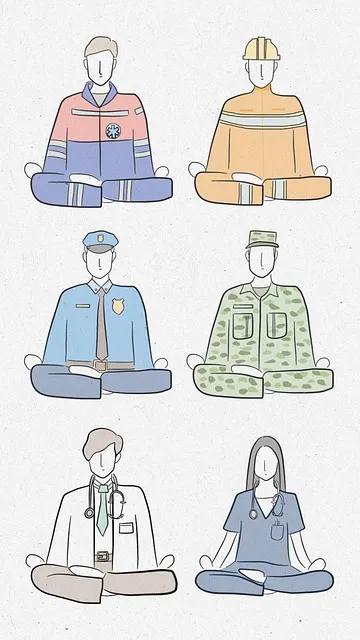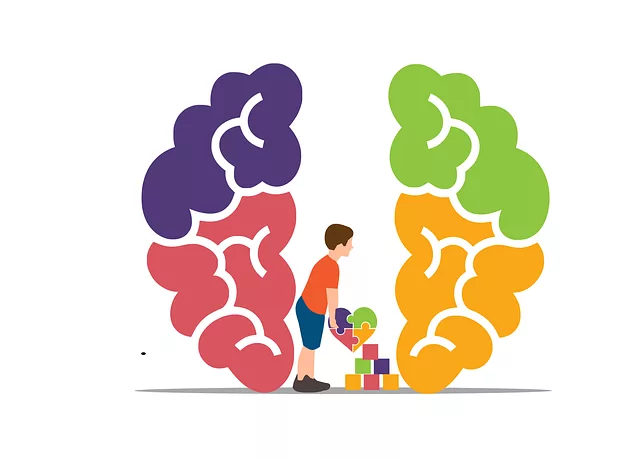Aurora Kaiser's Mental Health classes offer a unique, holistic approach to emotional regulation through inner strength and positive thinking. Evaluated using both quantitative techniques (surveys, questionnaires, statistical analysis) and qualitative methods (focus groups, interviews), the program tracks participant satisfaction, mental health symptom improvements, and self-care practices. Quantitative data guides optimization, while qualitative insights ensure lessons resonate deeply, fostering lasting positive change in Aurora Kaiser's mental health classes.
Mental wellness programs are increasingly vital, and proper evaluation methods are crucial for their success. This article explores effective strategies to assess these programs, focusing on Aurora Kaiser’s Mental Health Classes as a foundational model. We delve into quantitative techniques like surveys and data analysis alongside qualitative approaches such as interviews and focus groups. By combining these methods, professionals can gain comprehensive insights, ensuring program improvements and positive outcomes for participants. Discover how these evaluation techniques contribute to the overall wellness of individuals engaged in Aurora Kaiser’s innovative mental health classes.
- Understanding Aurora Kaiser's Mental Health Classes: A Foundation for Evaluation
- Quantitative Assessment Techniques in Program Evaluation
- Qualitative Insights and Feedback Collection Methods
Understanding Aurora Kaiser's Mental Health Classes: A Foundation for Evaluation

Aurora Kaiser’s Mental Health classes offer a unique and holistic approach to evaluating mental wellness programs. These classes aren’t just about teaching coping mechanisms; they empower individuals to cultivate inner strength development and positive thinking, which are fundamental pillars of emotional regulation. By focusing on these core concepts, Aurora Kaiser fosters an environment where participants can build resilience and gain valuable tools for navigating life’s challenges.
Her evaluation methods are designed to assess the impact of these classes on individual well-being. This includes measuring changes in attitudes towards mental health, increases in self-care practices, and improvements in emotional stability. By understanding how Aurora Kaiser’s program contributes to positive thinking and emotional regulation, it becomes easier to gauge its effectiveness and make informed adjustments to future sessions, ensuring the program continues to meet the evolving needs of its participants.
Quantitative Assessment Techniques in Program Evaluation

Quantitative assessment techniques play a crucial role in evaluating the effectiveness of mental wellness programs like those offered by Aurora Kaiser. These methods involve collecting and analyzing numerical data to gain insights into program outcomes. By utilizing surveys, questionnaires, and statistical analysis, researchers can measure key metrics such as participant satisfaction, improvements in mental health symptoms, and adherence to self-care practices. For instance, assessing the impact of crisis intervention guidance or conflict resolution techniques through quantitative means allows for objective comparisons between different interventions and identifies what strategies are most beneficial.
In the context of Aurora Kaiser’s mental health classes, quantitative assessments can help track progress over time, determine the overall success of the program, and inform future iterations. By gathering data on participants’ psychological well-being before and after the classes, researchers can evaluate whether the implemented Self-Care Practices are making a tangible difference in their lives. This not only benefits the program’s design but also provides valuable insights for mental health professionals and policymakers aiming to enhance access to effective crisis intervention guidance.
Qualitative Insights and Feedback Collection Methods

Qualitative methods play a pivotal role in evaluating mental wellness programs like those offered by Aurora Kaiser. These approaches allow for an in-depth understanding of participants’ experiences, insights, and perspectives, which are crucial for refining and improving program effectiveness. Techniques such as focus groups and interviews enable facilitators to gather rich, descriptive data through open-ended questions that probe into emotions, challenges faced, and the impact of various activities or discussions.
For instance, employing Empathy Building Strategies in mental health classes can be evaluated qualitatively by asking participants about their feelings during these sessions and how they perceived the facilitator’s approach. Similarly, assessing Coping Skills Development involves exploring individuals’ ability to apply learned techniques in their daily lives and their overall sense of preparedness to handle stress or difficult situations. By incorporating these methods, facilitators can gain valuable insights into the emotional intelligence fostered within the program and ensure that lessons resonate on a deeper level, promoting lasting positive change.
The evaluation of mental wellness programs, such as those inspired by Aurora Kaiser’s teachings, is a multifaceted process. By combining quantitative assessment techniques with qualitative feedback collection methods, we can gain comprehensive insights into program effectiveness. This includes measuring participant outcomes, satisfaction levels, and behavioral changes, while also gathering rich narratives and insights through interviews and focus groups. Integrating these evaluation methods allows for a holistic understanding of the impact of Aurora Kaiser’s mental health classes, enabling continuous improvement and enhanced support for individuals seeking mental wellness.






